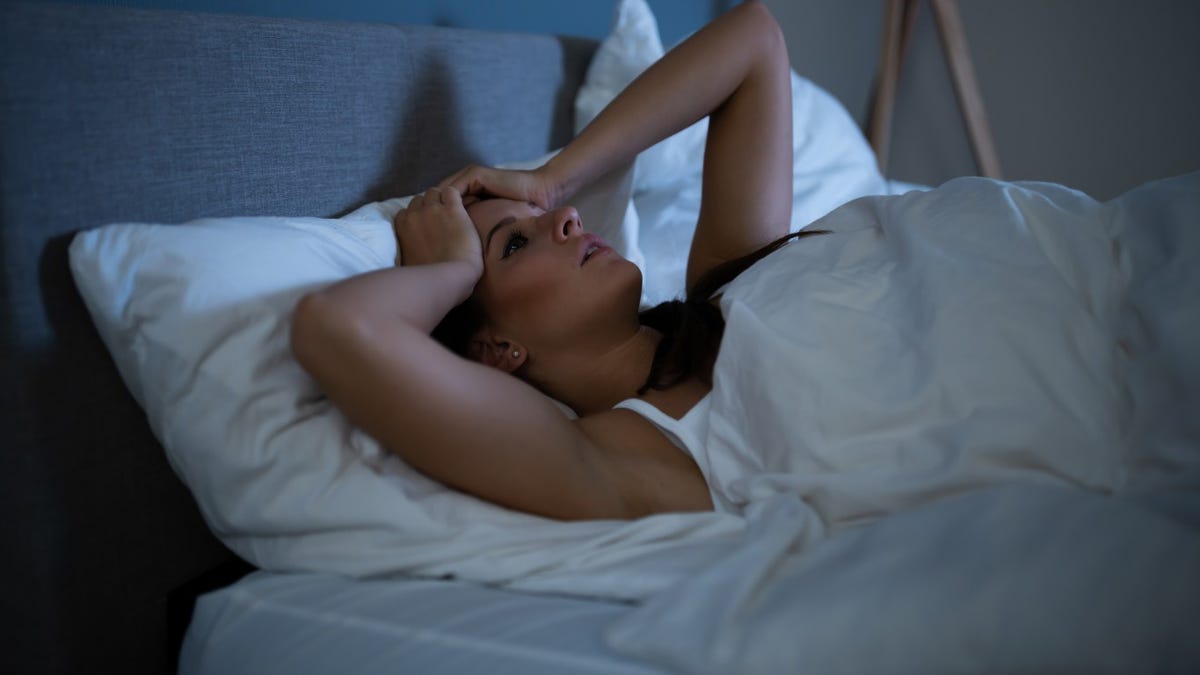Sleep apnea remedies vying for place in bedroom
It’s been two decades since doctors fully recognized that interrupted breathing during sleep is tied to a host of health issues, but there still isn’t a treatment for sleep apnea that most people find easy to use. (July 11)
AP
The Centers for Disease Control and Prevention notes on its website that not getting enough sleep is linked with many chronic diseases and conditions, including type 2 diabetes, heart disease, obesity and depression. The organization also warns that “a third of US adults report that they usually get less than the recommended amount of sleep.”
Sleep apnea is among the long list of disruptors preventing healthy, continuous sleep in many adults. But what exactly is this common condition? What are the symptoms? And how can you tell if sleep apnea is the reason behind your poor sleep? Read on to find out.
What is sleep apnea?
Sleep apnea is “a common disorder in which breathing is interrupted repeatedly during sleep,” says Melissa Lipford, M.D., a neurologist at Mayo Clinic, Rochester. The American Medical Association estimates that about 30 million people in the United States have sleep apnea, but only 6 million have been diagnosed with the condition.
How to fall asleep easier: Here’s 5 tips to hit the pillow faster and wake up more refreshed.
What is the main cause of sleep apnea?
While there are multiple types of sleep apnea including central sleep apnea, obstructive sleep apnea and complex sleep apnea, Lipford says obstructive sleep apnea is most common. “Obstructive sleep apnea is caused by relaxation of the muscles in the back of the throat as we sleep,” she explains. As such muscles relax, they block (or partially block) the flow of air into one’s lungs, and the brain then senses the lack of oxygen and wakes the person up in order to reopen the airway.
These awakenings are usually so brief one doesn’t remember them, but they often occur many times during the night and can significantly affect the quality of one’s sleep and may even lead to other more serious health consequences. “The repeated nighttime awakenings can lead to being sleepy during the day, poor concentration and increased risk of driving accidents,” says Lipford. “Additionally, untreated sleep apnea is associated with high blood pressure, heart attacks, strokes and memory issues.”
Sleep apnea symptoms
Common signs of sleep apnea include:
- loud snoring (because a blocked passageway vibrates especially),
- episodes in which one stops breathing during sleep (which are often reported by a bedmate),
- gasping for air during sleep
- the presence of fatigue following even after a full night’s rest.
Some breathing apps can also detect episodes of sleep apnea and many people have discovered the disorder in themselves after recording their sleep patterns throughout the night.
Smartphone owner, heal thyself: Download these for relaxation, meditation and better sleep
Can sleep apnea be cured?
While there is no cure for sleep apnea, it can be effectively treated. “There are now multiple options available for treating sleep apnea,” Lipford says. Among the most common and effective forms of treatment is a continuous positive airway pressure (CPAP) device. A CPAP device delivers airflow to the nose and mouth using a face mask or nasal cushion. The flow of air keeps the upper airway passages open, which prevents the brain from having to awaken one’s body during sleep. Other treatments include oral appliances that can be worn throughout the night, along with surgical treatments. Lifestyle interventions such as weight loss, avoiding alcohol in the evening and avoiding sleeping on one’s back have also proven to be helpful.
What should I do if I have sleep apnea?
It’s important “to have a discussion with your healthcare provider” if you suspect you may be struggling with sleep apnea, Lipford says. “Questions about sleep don’t always come up during a routine physical, so you may need to bring up your specific concerns.” A provider may then recommend sleep testing which can be done in a sleep lab or in one’s home to measure the extent of the problem so treatment can be recommended. “Once sleep apnea is diagnosed, a sleep specialist can work with you to develop a treatment plan that is tailored to your needs and preferences,” she explains. “When sleep apnea is appropriately treated, the results can be life changing.”
Concerned about your sleep? More stories like this:
What is sleep hygiene? What to know to do it right and some tips for better sleep.
Why do people sleepwalk? The details you need to know and how to address it in your life.
More: Why some people talk in their sleep and how to help them stop
Try this: The surprising benefits that come from breathing entirely through your nose
For all the latest Lifestyle News Click Here
For the latest news and updates, follow us on Google News.

